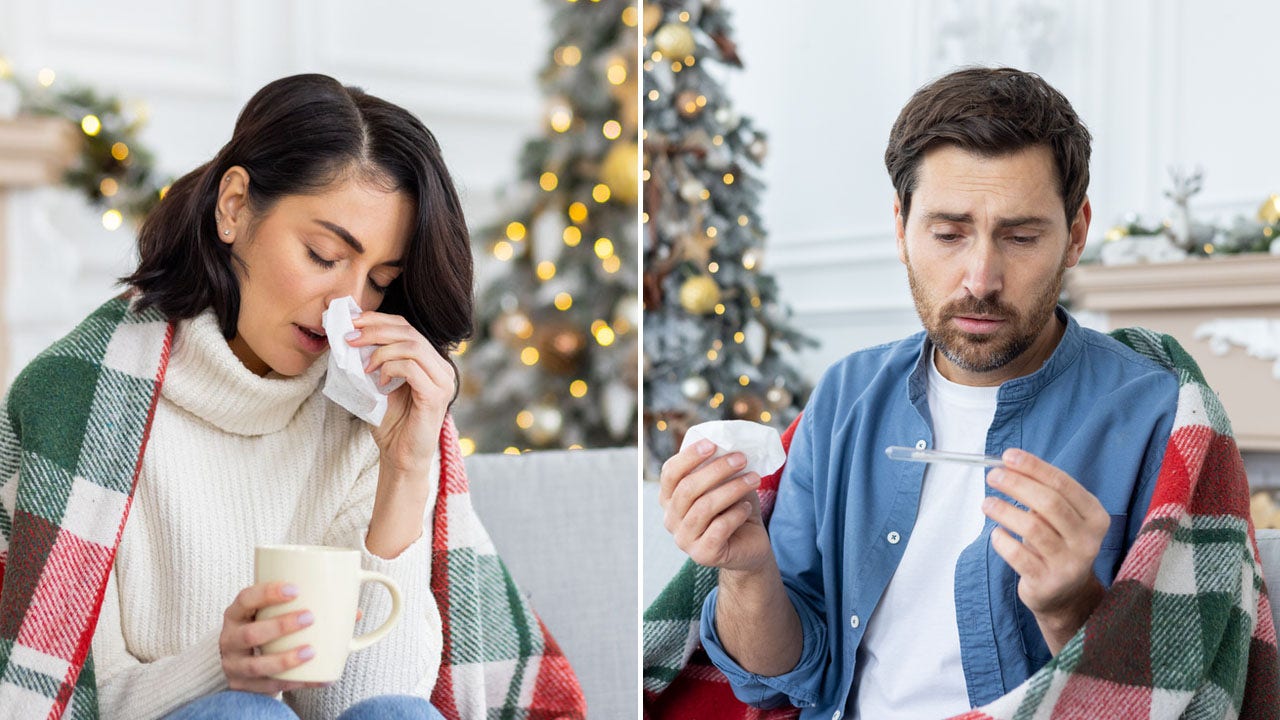How to Avoid Holiday Illness: Seek Medical Advice
Celebration should be skipped based on symptoms advised by medical experts.

As the holidays draw near, 82% of Americans plan to come together to celebrate, exchange gifts, and reminisce, inadvertently spreading germs in the process.
Gatherings increase the risk of infection transmission, particularly to vulnerable individuals such as children, elderly family members, and those with weakened immune systems or multiple medical conditions, according to Varvara Probst, M.D., a clinical assistant professor in the department of pediatrics at the University of Florida’s College of Medicine in Gainesville, Florida.
You can take certain steps to minimize the chance of getting ill while spending time with loved ones.
Doctors shared their advice with Planet Chronicle Digital on preventing gatherings from becoming "super-spreaders."
1. Get current on vaccinations
Vaccinations play a big role in preventing holiday illness, according to Probst.

One of the most effective ways to minimize the chance of getting infected and hospitalized is to stay current on flu and COVID-19 vaccinations, according to her, as she shared with Planet Chronicle Digital.
Pneumococcal and RSV vaccinations are also recommended for older adults, Probst added.
These steps can significantly reduce the likelihood of serious infections and make family gatherings more enjoyable for everyone, she stated.
2. Wash hands frequently
Doctors agree that regular and thorough handwashing is a simple yet powerful method to prevent the spread of germs between people and from contaminated surfaces like door knobs and furniture.
When traveling for long distances or if someone at home is feeling unwell, it is especially important, Probst emphasized.

The doctor advised against touching your eyes, nose, or mouth with unwashed hands, as this increases the risk of infection.
3. Limit close contact with sick people
Probst advised avoiding close contact with people who have colds or stomach bugs.
Children, the elderly, and those with existing conditions or weakened immunity are most at risk.
Wearing a mask and washing hands frequently can help minimize exposure to infection when interacting with someone who is sick, she advised.
4. Be mindful about large gatherings
Probst advised that those at higher risk should avoid crowded, poorly ventilated spaces as germs have a higher chance of being inhaled.
Wearing a mask in crowded areas can be beneficial for people with weakened immune systems or multiple health conditions, as it can reduce the amount of germs you breathe in.
5. Prioritize nutrition and nutrients
Probst suggests that consuming "freshly prepared food" can lower the chances of getting stomach infections or food poisoning.

Dr. Jesus Lizarzaburu, a family physician at TPMG Grafton Family Medicine in Yorktown, Virginia, advises taking vitamin C prior to the holiday season to prevent illness.
According to Planet Chronicle Digital, vitamin D can enhance immune responses and research shows that zinc can shorten the length of cold symptoms.
6. Focus on healthy behaviors
Experts suggest that maintaining good sleep habits, staying hydrated, eating a balanced diet, and getting regular exercise can strengthen the immune system, enabling it to effectively combat infections and illnesses if you become ill.
How sick is too sick?
It may be necessary to skip a holiday gathering to prevent spreading infections and getting others sick.
Probst stated that symptoms such as a fever, muscle aches, persistent and strong coughing, frequent sneezing with large amount of nasal discharge, or frequent vomiting and diarrhea may indicate that you are too sick to attend a family gathering.

The presence of these symptoms may indicate a high likelihood of virus transmission, posing a significant threat to vulnerable populations such as children, the elderly, and individuals with pre-existing medical conditions or compromised immune systems, as stated.
The doctor advised that it would be safer to recover at home in such cases.
For more Health articles, visit planetchronicle.net/health
The CDC states that it is possible to spread a virus even after symptoms have subsided.
Those experiencing persistent symptoms should see a doctor for health guidance.
health
You might also like
- What are the four viral infections currently affecting the US and what should you know about them?
- Doctors hail a 'New golden age' with Trump and a healthier America.
- Researchers suggest a more accurate way to measure obesity than BMI.
- Ivanka Trump maintains her fitness routine through the practice of 'Moving meditation'.
- To detect more bird flu cases, the CDC advises quicker 'subtyping'.



















